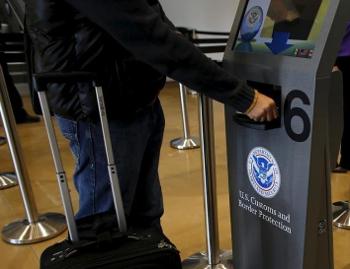U.S. visa law impacting Sudanese with dual nationalities goes into effect
January 21, 2016 (KHARTOUM) – The U.S. government announced today the implementation of a new law that was passed last December which introduced changes to the Visa Waiver Program (VWP).

VWP Nationals submit an electronic form known as ESTA—with biographic, citizenship, travel and other information—to determine eligibility to travel to the U.S. and whether such travel poses a law-enforcement or security risk.
VWP nations are Andorra, Australia, Austria, Belgium, Brunei, Chile, Czech Republic, Denmark, Estonia, Finland, France, Germany, Greece, Hungary, Iceland, Ireland, Italy, Japan, Latvia, Liechtenstein, Lithuania, Luxembourg, Malta, Monaco, Netherlands, New Zealand, Norway, Portugal, San Marino, Singapore, Slovakia, Slovenia, South Korea, Spain, Sweden, Switzerland, Taiwan and United Kingdom.
Those impacted include nationals of VWP countries who have traveled to or been present in Iran, Iraq, Sudan, or Syria on or after March 1, 2011 and those who are also nationals of Iran, Iraq, Sudan, or Syria.
“These individuals will still be able to apply for a visa using the regular immigration process at our embassies or consulates. For those who need a U.S. visa for urgent business, medical, or humanitarian travel to the United States, U.S. embassies and consulates stand ready to process applications on an expedited basis”.
“Such travelers will be required to appear for an interview and obtain a visa in their passports at a U.S. embassy or consulate before traveling to the United States”.
Exceptions can be made for those who traveled to Iran, Iraq, Sudan or Syria on behalf of international organizations, regional organizations, sub-national governments on official duty or on behalf of a humanitarian NGO or as a journalist for reporting purposes.
Furthermore those who traveled to Iraq and Iran for “legitimate business-related purpose” can be given waivers from visa as well.
The Department of Homeland Security (DHS) stressed that exceptions “will be determined on a case-by-case basis, consistent with the terms of the law”.
“In addition, we will continue to explore whether and how the waivers can be used for dual nationals of Iraq, Syria, Iran and Sudan”.
It is not clear how dual nationality will be determined for people born in the VWP countries and never traveled to the affected four countries. U.S. officials have thus far avoided answering this question.
The VWP changes came in wake of terrorist attacks in Paris late last year which made U.S. officials fearful that citizens of VWP countries, who are members of ISIS or other terrorist groups, could utilize it to sneak into the county to carry out attacks.
The alleged Paris attackers were European citizens who could have theoretically entered the U.S. with little scrutiny.
But many have called into question why dual citizens of other countries with significant terrorist activities have not been included. Others have also expressed skepticism that the new law will protect the US given that ISIS recruits usually cross the borders illegally to Syria from Turkey or straight to ISIS stronghold in Sirte, Libya.
“Why is this rule not being applied to people who are also of Saudi Arabian dual nationality or have visited Saudi Arabia, or Pakistani or other countries who have, frankly, produced a lot more terrorists than, like, Sudan?” a reporter asked the U.S. State Department spokesperson on Thursday.
“[T]his law was passed December 15th with the intention of increasing the level of security for people coming on visa-free travel to the United States. And we are, in conjunction with, and frankly, Department of Homeland Security has the lead on this, enacting that law,” spokesperson Mark Toner responded.
Americans may also end up affected by the new rule, if VWP countries introduces reciprocal action against U.S. citizens.
Sudan and Iran were not mentioned specifically in the law but since they are designated under the International Emergency Economic Powers Act, they were included. The U.S. lists Sudan as a state sponsor of terrorism and is under comprehensive economic sanctions since 1997.
Iraq and Syria were targeted specifically because ISIS has seized significant territory in each country for its would-be caliphate.
(ST)
